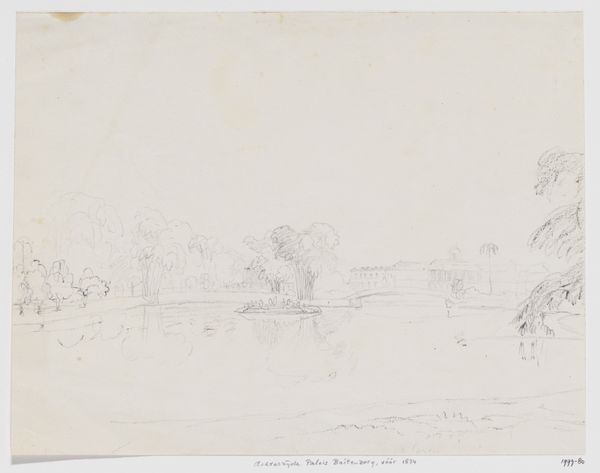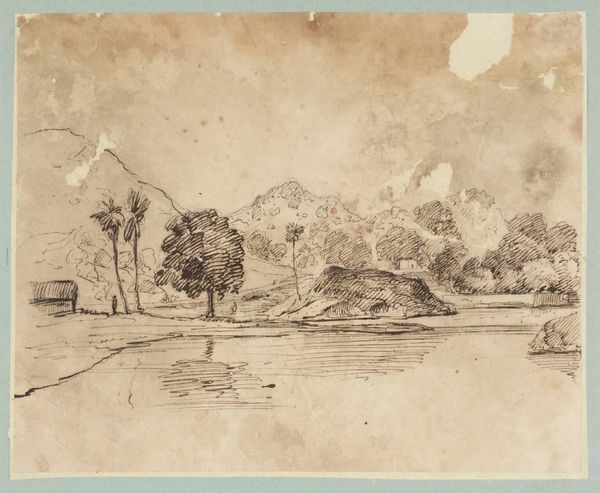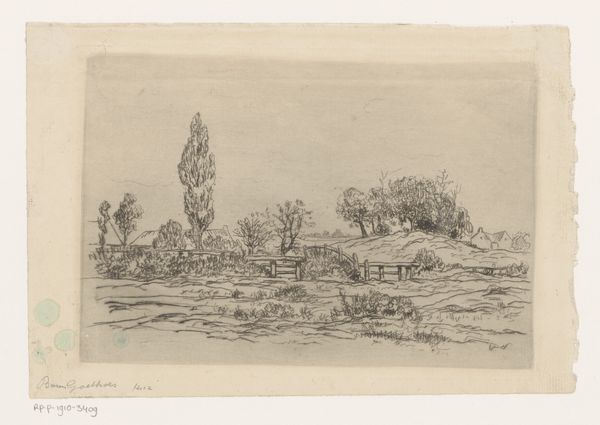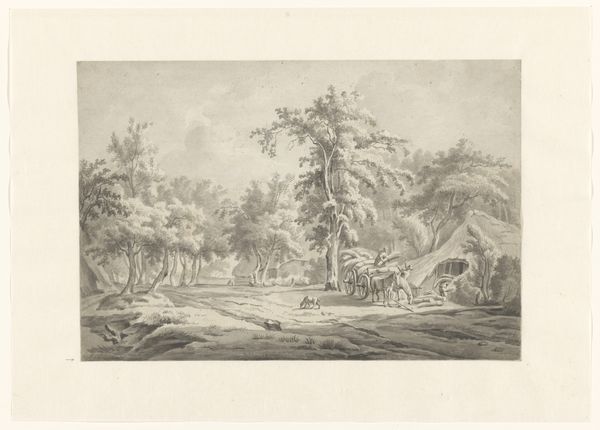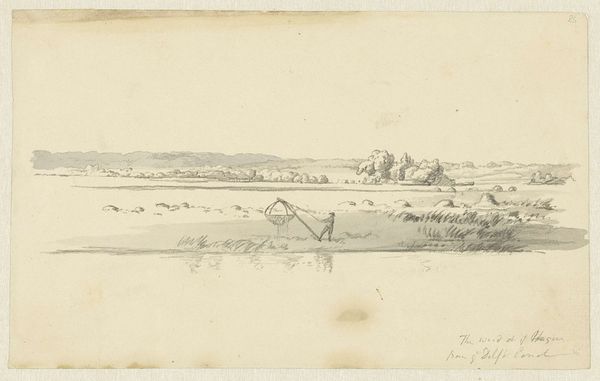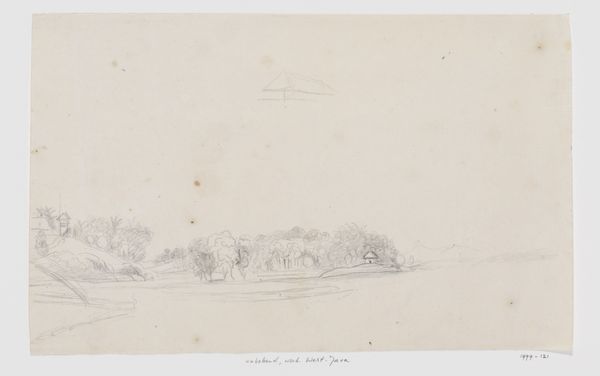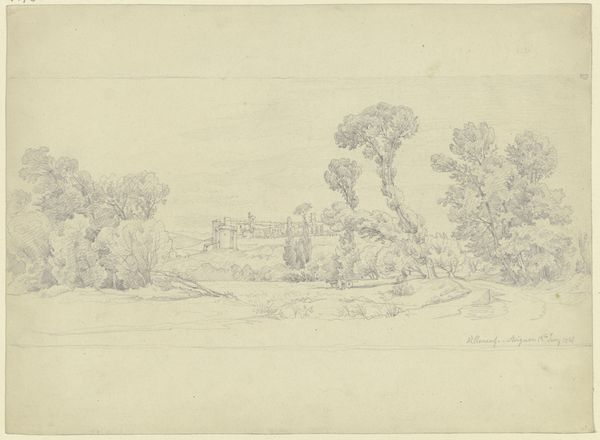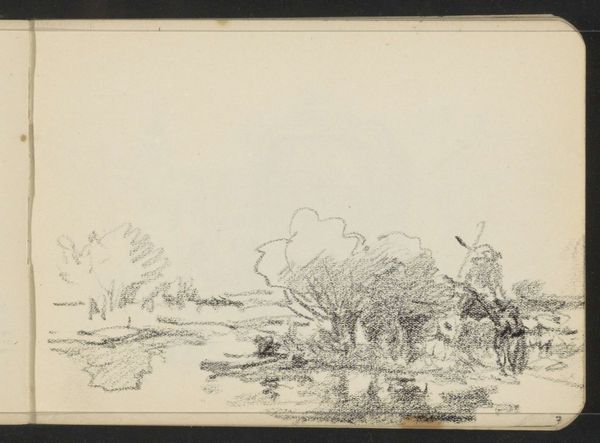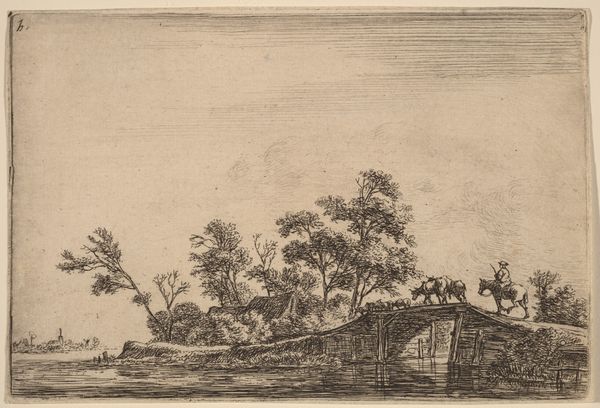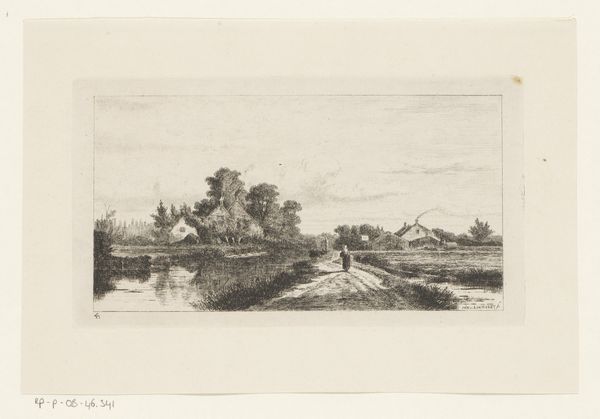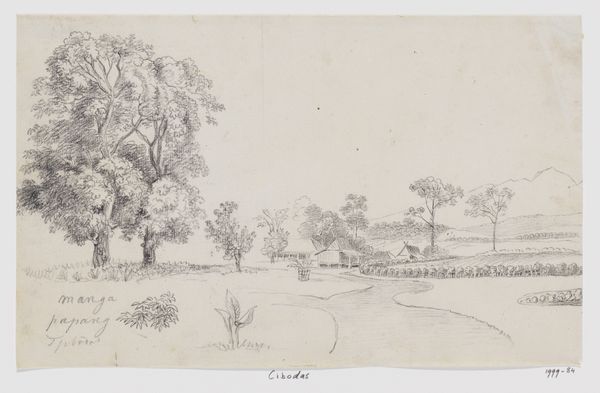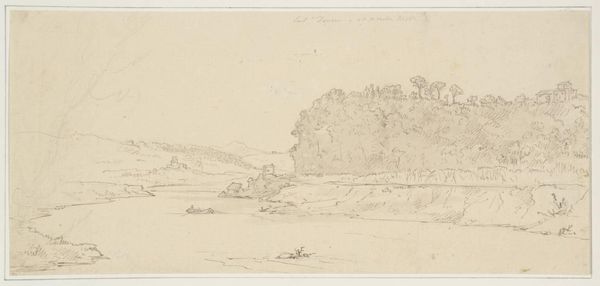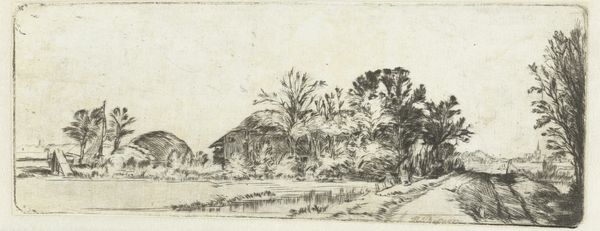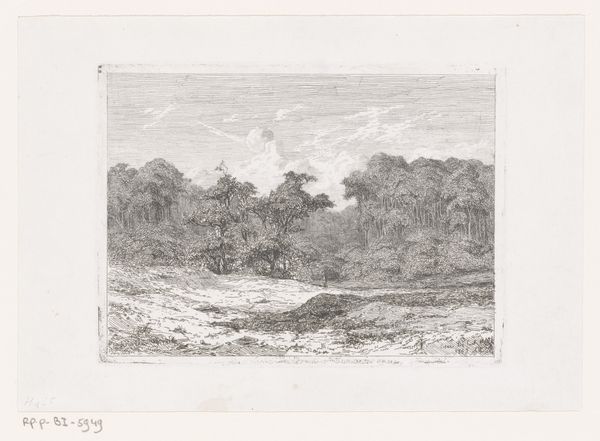
Gezicht op de negorij Dullah en het strand met loodsen en vaartuigen, vanuit de zee, Kai eilanden, Zuidoost-Molukken 1824
0:00
0:00
drawing, pencil
#
pencil drawn
#
drawing
#
pencil sketch
#
landscape
#
charcoal drawing
#
pencil drawing
#
pencil
#
orientalism
#
pencil work
#
realism
Dimensions: height 177 mm, width 437 mm
Copyright: Rijks Museum: Open Domain
Editor: So, this is Adrianus Johannes Bik's "View of the settlement of Dullah and the beach with sheds and boats, from the sea, Kai Islands, Southeast Moluccas" created in 1824 using pencil. I'm struck by the seemingly simple execution, a quick sketch almost. What stands out to you about this piece? Curator: For me, it is about unpacking that “simple execution”. Consider the pencil, a readily available, inexpensive material even then. It facilitated the rapid creation of this image, but also speaks volumes about the context of its production. What role did this type of image play in the colonial project? Editor: That's a great point! So, you're thinking about the material limitations and their connection to a broader purpose? Like, this wasn’t meant as a fine art piece, but more of a… record? Curator: Exactly. This wasn't about artistic expression in the romantic sense. It’s a record, an inventory. Think about who commissioned it, and what purpose that served. The choice of pencil – the speed, reproducibility – directly enabled the documentation and potential exploitation of the landscape and its people. What does that say about artistic "skill" in this context? Editor: So the artist's skill isn't just in their technique, but also in their efficiency in providing information for, presumably, colonial interests. It completely reframes the artwork when you consider it a tool rather than a pure aesthetic pursuit. Curator: Precisely. It forces us to question the relationship between art, labor, and power structures in the 19th century. We move beyond aesthetic appreciation and engage with the social reality embedded within the very materiality of the artwork. Editor: That's fascinating. I'll definitely look at these landscape drawings with different eyes now. I was so focused on the scene itself.
Comments
No comments
Be the first to comment and join the conversation on the ultimate creative platform.
